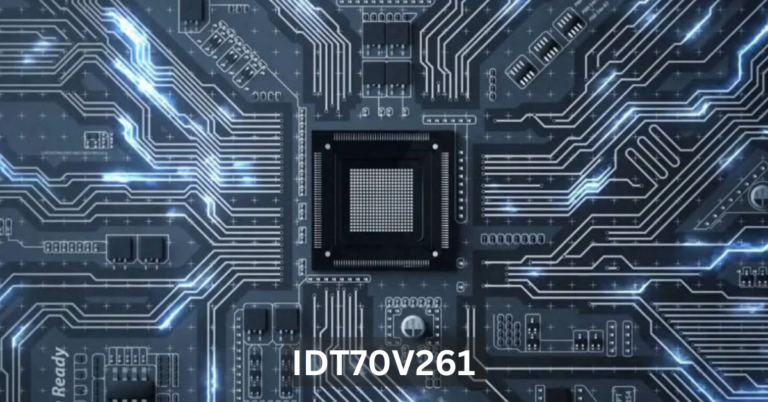Why 24685200081 is Essential for Secure Transactions
Unique identifiers like “24685200081” are used to track and authenticate products, devices, and transactions. They ensure that each item or process can be easily identified and monitored, improving efficiency and security across various industries.
These numerical codes play a crucial role across various industries by providing a system of organization and security that improves efficiency and accuracy. Whether it’s tracking a product through a supply chain, authenticating a mobile device, or securing financial transactions, unique identifiers are indispensable.
This article explores the significance of such identifiers, particularly “24685200081,” and how they are utilized in industries like logistics, telecommunications, and e-commerce. We will also delve into how these numbers are enhancing business efficiency, streamlining operations, and improving customer experiences. Through the lens of technologies like blockchain and AI, we’ll highlight the future trends that will shape the use of unique identifiers.
What Are Unique Identifiers?
Unique identifiers are numerical or alphanumeric codes that are assigned to objects, products, or systems for identification and tracking purposes. These identifiers ensure that there is no ambiguity or confusion regarding the object or process they represent. A good example of a unique identifier is the barcode number used in retail or the IMEI (International Mobile Equipment Identity) number that uniquely identifies mobile phones.
Unique identifiers like “24685200081” can be used in a variety of ways across industries. In the logistics sector, they help track shipments and inventory, ensuring products are in the right place at the right time. In telecommunications, unique identifiers like the IMEI number allow telecom operators to manage mobile devices and prevent fraud. In the world of e-commerce, identifiers are used to track orders, products, and customer data.
The consistency and uniqueness of these identifiers are paramount in ensuring smooth operations across different systems, reducing errors, and improving accountability. For example, without unique identifiers, tracking shipments, authenticating devices, and securing financial transactions would be nearly impossible.
The Role of “24685200081” in Various Industries
Logistics and Supply Chain Management
In the logistics and supply chain sectors, unique identifiers like “24685200081” are essential for managing inventory, shipments, and the overall flow of goods. By assigning a unique number to each item, businesses can track products from the moment they leave a warehouse until they arrive at their final destination. This improves transparency and enables businesses to monitor the progress of each shipment in real time.
For instance, major logistics companies like FedEx or UPS rely heavily on tracking numbers to ensure that packages are delivered on time and to the correct locations. Each shipment is assigned a unique barcode or tracking number, such as “24685200081,” that allows the company to quickly identify and locate the product.
Additionally, RFID (Radio Frequency Identification) tags are often used to automate tracking and improve the accuracy of inventory management. By incorporating these technologies, logistics companies can reduce errors, save time, and cut operational costs.
Telecommunications
Telecommunications companies rely on unique identifiers like the IMEI number to manage mobile devices and ensure secure communication. The IMEI is a unique 15-digit number assigned to each mobile phone and is used to track devices, prevent theft, and manage network security.
For example, when a user reports a stolen phone, the telecom operator can block the device from accessing the network using its IMEI number. This security measure helps prevent unauthorized use of mobile devices and is an essential part of protecting both consumers and telecom operators.
Additionally, unique identifiers in telecommunications are also used to track and authenticate devices across various networks. These identifiers help telecom companies maintain network integrity and deliver secure, reliable services to their customers.
E-Commerce and Retail
In the world of e-commerce, unique identifiers like “24685200081” play a crucial role in managing product listings, tracking orders, and improving the customer experience. E-commerce platforms like Amazon, eBay, and Shopify rely on unique product identification numbers to ensure their inventory is organized and easy to navigate. These identifiers help businesses quickly retrieve product information, improve searchability, and streamline checkout processes.
When a customer places an order, a unique tracking number is often assigned to monitor the progress of the shipment. This allows both the seller and the customer to track the status of the order in real time, ensuring a smooth and transparent purchasing experience.
Moreover, personalized e-commerce experiences are becoming more common, as unique identifiers help businesses tailor their offerings to individual customers. For example, customer data can be stored securely using unique identifiers to provide targeted product recommendations, special offers, and loyalty rewards.
How Unique Identifiers Drive Business Efficiency
Unique identifiers like “24685200081” streamline operations by organizing data and processes in a way that is both efficient and scalable. By eliminating ambiguity, these identifiers help businesses improve accuracy, reduce errors, and save time.
Streamlining Operations Through Structured Data Management
One of the key advantages of using unique identifiers is their ability to structure data in a way that is easy to manage. For example, inventory management systems rely on unique product identifiers to catalog items, track quantities, and generate reports. This allows businesses to optimize their stock levels and prevent overstocking or stockouts.
In the supply chain, unique identifiers enable seamless coordination between suppliers, manufacturers, and distributors. By using a standardized system of identification, businesses can ensure that products move efficiently from one stage of production to the next, reducing delays and improving overall workflow.
Enhancing Accuracy in Inventory, Order Processing, and Customer Service
Unique identifiers reduce the chances of human error by automating many processes. For instance, a barcode scanner can instantly capture the unique identifier of a product, ensuring that inventory counts are accurate. This also makes it easier to locate products in a warehouse or distribution center.
In e-commerce, unique order numbers help prevent mix-ups in order fulfillment, ensuring customers receive the correct products. Furthermore, unique identifiers allow businesses to provide better customer service by easily retrieving order details, tracking information, and product availability.
Security and Authentication with Unique Identifiers
Security is a primary concern for businesses and consumers alike. Unique identifiers help protect sensitive information and prevent fraud by providing a secure way to authenticate devices, transactions, and customer accounts.
The Importance of Secure Systems for Protecting Data and Preventing Fraud
Unique identifiers, when paired with encryption and secure communication protocols, can protect sensitive information from being intercepted or tampered with. For example, financial transactions often involve the use of unique transaction IDs to ensure that funds are securely transferred between parties.
In telecommunications, the IMEI number helps prevent mobile phone theft by enabling operators to block stolen devices from accessing the network. This not only protects the owner but also prevents fraudulent activities such as identity theft or unauthorized account usage.
Role of Encryption, Secure Protocols, and Blockchain Technology
Blockchain technology is playing an increasingly important role in securing unique identifiers. By providing a decentralized, transparent, and tamper-proof record of transactions, blockchain enhances the security of product tracking systems, financial transactions, and identity management systems.
For instance, blockchain can be used to verify the authenticity of products in the supply chain, ensuring that customers receive genuine items rather than counterfeit goods. Similarly, blockchain can secure financial transactions, preventing fraud and ensuring transparency.
Applications of “24685200081” in Logistics and Supply Chain Management
The number “24685200081” could be used as a tracking code for a shipment, allowing businesses to monitor the movement of goods through the supply chain. Whether it’s a barcode, RFID tag, or digital identifier, these codes enable real-time tracking, improving transparency and reducing delays.
Real-World Use Cases in Monitoring Shipments and Managing Warehouses
In large warehouses, unique identifiers are used to track products as they move through various stages of the supply chain. For instance, a product might be assigned a unique code like “24685200081” as it is received, stored, and shipped. RFID tags or barcodes are scanned at each stage to ensure accuracy and prevent errors.
Similarly, in logistics operations, unique identifiers help prevent mix-ups and ensure that products are delivered to the right locations. Companies can also use these identifiers to optimize delivery routes, reducing costs and improving delivery times.
The Role of Blockchain in Securing and Verifying Identifiers
Blockchain technology is transforming the way unique identifiers are used in industries like logistics, finance, and e-commerce. By providing a secure, transparent, and immutable record of transactions, blockchain enhances the reliability and trustworthiness of unique identifiers.
How Blockchain Technology Enhances Transparency and Security
Blockchain allows businesses to securely store and track identifiers in a decentralized system, making it nearly impossible for data to be altered or tampered with. For example, blockchain can be used to verify the authenticity of products as they move through the supply chain, ensuring that counterfeit goods are not introduced into the market.
In financial transactions, blockchain technology can provide an immutable record of transaction IDs, ensuring that funds are securely transferred and reducing the risk of fraud.
The Impact of AI and Big Data on the Use of Unique Identifiers
AI and big data are revolutionizing the way businesses use unique identifiers. By analyzing large datasets, AI systems can automate decision-making and identify patterns that would be difficult for humans to detect.
Using AI for Automated Analysis of Identifiers
AI algorithms can analyze vast amounts of data containing unique identifiers to predict trends, optimize operations, and improve customer service. For example, AI can predict demand for products in the supply chain, allowing businesses to adjust inventory levels accordingly.
How Big Data Analytics Improves Operational Efficiency
Big data analytics can help businesses identify inefficiencies in their operations by analyzing data from various sources. By using unique identifiers to track products and transactions, companies can gain insights into customer behavior, supply chain performance, and inventory management.
Future Trends: The Growing Importance of Unique Identifiers
As technology continues to evolve, unique identifiers will play an even more significant role in industries like logistics, telecommunications, and e-commerce.
The Evolving Role of IoT (Internet of Things) in Product and Device Identification
With the rise of IoT, every connected device will require a unique identifier to communicate with other devices. Whether it’s a smart thermostat, a connected car, or a wearable device, each IoT device will have its own unique identifier, ensuring smooth communication and interaction.
How Emerging Technologies Like 5G and Machine Learning Will Rely on Unique Identifiers
5G technology and machine learning will further increase the demand for unique identifiers as they enable faster, more reliable communication and automated decision-making. These technologies will rely on unique identifiers to track devices, products, and transactions in real time.
Best Practices for Businesses to Leverage Unique Identifiers
To maximize the benefits of unique identifiers, businesses should adopt best practices that ensure data accuracy, security, and operational efficiency.
Recommendations for Integrating Unique Identifiers into Systems
Businesses should implement automated systems for managing unique identifiers, such as barcode scanning and RFID tracking, to reduce human error and improve efficiency. Additionally, adopting blockchain technology can help secure these identifiers and enhance transparency.
Tips for Enhancing Customer Experience and Strengthening Security
To improve customer experience, businesses should focus on providing transparent and accurate tracking information for products and orders. This can be achieved by integrating systems that allow customers to track their purchases in real time, from order confirmation to delivery. Furthermore, companies should prioritize secure payment processes and ensure that sensitive customer data is protected using robust encryption protocols.
By implementing these best practices, businesses can build trust with their customers, improve operational efficiency, and ensure the safety and authenticity of their products and services.
Conclusion
Unique identifiers like “24685200081” are more than just numbers—they are the backbone of modern business systems. From logistics to telecommunications and e-commerce, these identifiers play an essential role in tracking products, managing inventory, securing financial transactions, and enhancing the customer experience.
As technologies like AI, blockchain, and IoT continue to advance, the role of unique identifiers will only grow. Businesses that adopt these systems and integrate them into their operations will not only improve efficiency and security but also stay ahead of the competition in an increasingly connected world.
By leveraging the power of unique identifiers, companies can streamline their operations, safeguard data, and provide a seamless experience for their customers. The future of business is data-driven, and unique identifiers are the key to unlocking its potential.
Frequently Asked Questions
How do unique identifiers improve business operations?
By using unique identifiers, businesses can streamline inventory management, order processing, and customer service. These identifiers help reduce errors, automate processes, and provide real-time tracking information, making operations more efficient and reliable.
What role does blockchain play in securing unique identifiers?
Blockchain enhances the security and transparency of unique identifiers by providing a decentralized, immutable record of transactions. This ensures that data cannot be tampered with and helps verify the authenticity of products, transactions, and devices.
How are unique identifiers used in telecommunications?
In telecommunications, unique identifiers like IMEI numbers are used to manage mobile devices, authenticate users, and prevent fraud. IMEI numbers also help telecom operators track and block stolen devices, ensuring network security.
Can unique identifiers improve the customer experience?
Yes, unique identifiers allow businesses to offer personalized services, track orders in real-time, and ensure the accuracy of product deliveries. By providing customers with transparency and convenience, companies can enhance satisfaction and build trust.
Stay in touch to get more updates & alerts on EroMe! Thank you






